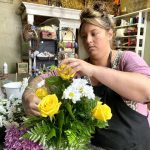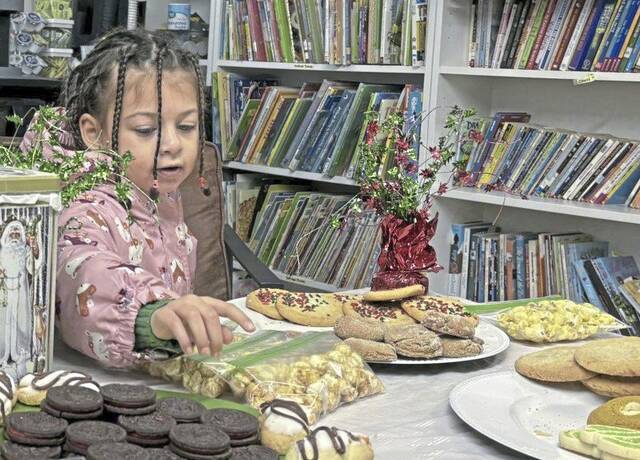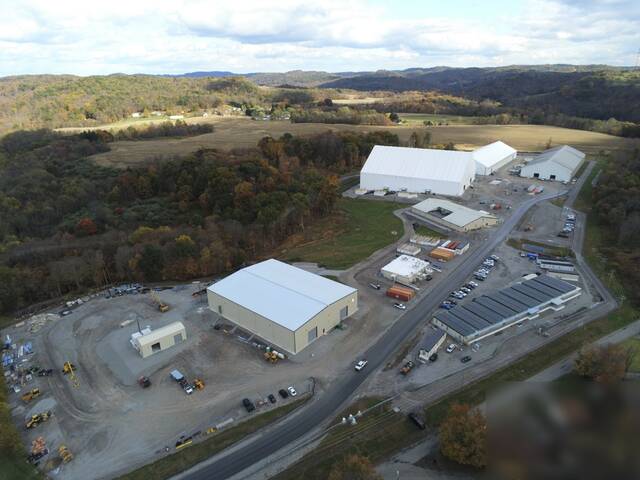Alle-Kiski Valley businesses are beginning to emerge from the incredible challenges caused by last year’s covid-19 pandemic.
Many small-business owners said they’ve experienced a significant loss of income, stress and hardship during the shutdown and subsequent covid restrictions placed on their businesses.
A 2020 U.S. Census Bureau Small Business Survey conducted with more than 100,000 business owners reported more than 50% of respondents said they expected it would take more than six months for their businesses to return to normal.
Meet four local business owners who have practiced resilience, perseverance and creativity in coping with the pandemic.
Leechburg Floral Co.
The pandemic forced business owner and borough resident Patty Suveges to layoff three employees at her full-service floral shop on Market Street in downtown Leechburg.
“I would say we had a 60% decrease in business,” said Suveges, noting her usual summer flower sales from weddings, funerals and events virtually vanished last year.
She said much of the loss in revenue came from a significant decrease of floral orders from funeral homes.
Modifications to her business model included implementing shorter business hours, offering flower sales via curbside pick-up or delivery only until she could afford to hire her employees back.
“I didn’t receive any financial help,” Suveges said. “I was very thankful that the loans I had were deferred for this period, which allowed me to get back on my feet.”
Patty’s daughter, Carissa Suveges, 31, was laid off for about six months at a time she also was a new mother.
Both ladies said their flower bookings from weddings were virtually decimated in 2020.
“We had five small weddings in 2020. We normally book 70-100 weddings annually,” Carissa Suveges said.
A high point for Suveges was when she opened back up fully staffed.
“The love and support from all of our loyal customers, as well as new ones, was overwhelming,” Suveges said.
“I do feel that people really supported their local businesses during this time. Things feel back on track now.”
French Quarters Pet Grooming
Tracie Caramellino of Allegheny Township runs a busy animal grooming business.
She normally books about 100 dog grooming sessions weekly, in addition to cat appointments.
When the pandemic hit, she was shocked and upset to learn Pennsylvania deemed her industry non- essential.
French Quarters closed from March 15, 2020, to May 18.
Caramillino, 50, said she lost almost 20% of her business last year.
She said her walk-in nail trimming business halted during the shutdown.
Before the pandemic, customers had to schedule about a month in advance, and about 40 nail sessions were scheduled weekly.
A change born from the pandemic was adding a monthly nail clinic day, every third Saturday.
“From 9 a.m to noon, that’s all we do: lots of nails,” Caramillino said.
Caramillino said she faced a shortage of employees because of some employees making money just by staying home.
“It was difficult to keep full-time employees — a very big challenge,” she said. She had to quit answering her business phone during grooming sessions because she’s too busy grooming animals.
The voice greeting on the business line instructs customers that the phone will not be answered, to leave a message and the call will be returned.
“There are so many hours in the day, and we do our best to try and keep up,” she said. “We’re all tired from such long hours. We are seriously still trying to adjust.”
The Gathering Room
Kelly Adamk owns a unique, two-concept business on Grant Avenue in downtown Vandergrift.
Adamk, 63, runs a single-chair hair salon on one side of her business and a gift shop on the other side at The Gathering Room, her labor of love that originally began just as a salon.
She said when the pandemic hit, her toughest challenge was the unknown.
Money provided by the federal Paycheck Protection program helped her small business survive.
“That helped me stay open until things began to come back,” Adamk said.
With at-risk relatives at her home in Allegheny Township and loyal customers, many of whom are senior citizens, Adamk decided to make her business as covid-free as possible.
Adamk said she cleaned, scrubbed, organized and reorganized her shop. She added air purification measures, bought shields, masks, goggles — anything she thought would help.
“I was also keeping in touch with other businesses in town,” Adamk said. “We were actually our own support center.”
Adamk said despite the hardships, she’s experienced silver linings. She missed seeing her regular customers and began calling her regular Friday ladies at their appointment times.
“We would chat just like they were at the shop,” she said. “It was good for them and also for me. I missed them.
“I’m grateful and humbled for the opportunity to be able to come back to my business,” Adamk said. “I’m blessed that Vandergrift made me a hometown girl for 26 years.”
Czekalski Real Estate
Four generations of family Realtors and property appraisers work together under one roof at the Harrison-based business founded in 1963 by Betty Czekalski.
Co-owners Janet and Wally Czekalski said they’ve never experienced anything what hit their industry since the pandemic began.
The company was labeled both essential and nonessential during last year’s shutdown — a confusing contrast of state-issued rulings for the Czekalskis.
The appraisal department was allowed to remain open while the real estate side of the business was forced to close.
“But we had to look at the homes from the outside, which was very difficult,” Wally Czekalski said. “We could not assemble at the office.”
The family said having half of their business open was unfair.
“It was very difficult because people were calling me to list their homes, and I had to tell them we couldn’t do what we normally do in terms of customer service,” Janet Czekalski said. “I feel that was wrong to do that. If the appraisers were essential, why not the real estate agents?”
One employee worked from the office, serving as a real estate/appraisal air traffic controller of sorts.
“We adapted. We’re going to do business here one way or the other,” Wally Czekalski said.
“We had no contact with people,” Janet Czekalski said of the one-person-at-a-time approach to showing and selling a home. “I’ve been in real estate since 1965, and never in my whole life did I see something like this.”
All 14 employees have returned to the office after working remotely.
The Czekalskis said sales were down about 20% on the real estate side, but the appraisal division experienced record-breaking sales because of covid and record low-interest rates,” said Michelle Czekalski Bradley, chief appraiser.
“We treat them like family, and we’ve been able to stay afloat, even during a pandemic.”


















